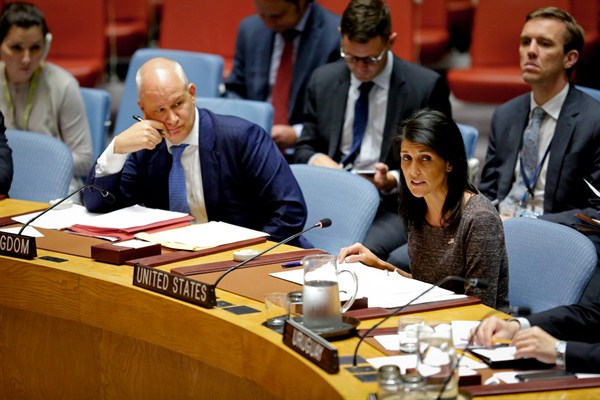Can the Trump administration give the General Assembly of the United Nations a new sense of purpose?
This may sound like an uproariously silly question. The assembly, in which all U.N. member states are theoretically equals, is largely a geopolitical backwater. It churns out hundreds of resolutions each year, and the vast majority of these are unimportant. Few people are probably aware that the assembly passed a lengthy resolution on the political status of Bermuda last year, for example, and even fewer are likely to be excited that it did so.
Yet the assembly can cause the occasional kerfuffle. Last week it voted to refer the dispute between the U.K. and Mauritius over the ownership of the Chagos Islands, a speck of British colonial territory in the Indian Ocean that hosts the U.S. military base at Diego Garcia, to the International Court of Justice. The court will only offer an advisory opinion, and will move slowly and cautiously. American planes will keep flying out of Diego Garcia regardless. But the vote, which London and Washington tried hard to avoid, shows that the General Assembly is still a platform for small countries to irritate the U.N.’s biggest powers.

